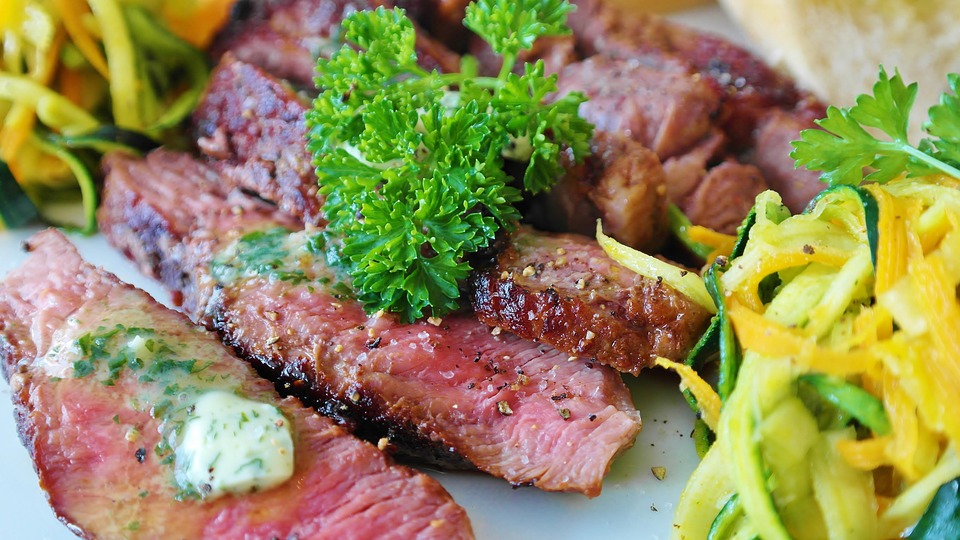The Science of Snacking: Healthy Ideas to Keep Your Energy Steady
Introduction
In today’s fast-paced world, snacking has become nearly ubiquitous. Whether in the form of quick bites between meals or as a staple for on-the-go lifestyles, the way we snack significantly influences our health and energy levels. This article delves into the science of snacking, exploring its impact on energy management, nutritional value, and offering healthy ideas to keep your energy steady throughout the day.
Understanding Snacking
The Role of Snacks in Our Diet
Snacking serves several purposes beyond mere hunger satisfaction. Snacks can provide essential nutrients, stabilize glucose levels, and even enhance cognitive performance. According to research, well-timed and nutritious snacks can prevent overeating during main meals by curbing hunger. However, not all snacks are created equal, and making informed choices is crucial for maintaining energy levels.
Psychological Factors
Understanding the psychological relationship people have with snacking is essential for promoting healthier habits. Emotions often dictate our desire to snack, with people reaching for comfort food in times of stress or boredom. Recognizing these triggers can help individuals make more intentional choices and avoid unhealthy snacking patterns.
The Science Behind Energy Levels
Glycemic Index and Snacking
The glycemic index (GI) is a crucial factor to consider in the context of snacking. It measures how quickly carbohydrate-containing foods raise blood sugar levels. High-GI snacks may provide quick energy but can lead to energy crashes, while low-GI snacks offer sustained energy over a prolonged period. Selecting snacks with a low to moderate glycemic index can help maintain stable energy levels and prevent hunger pangs.
Hormones and Energy Regulation
Hormonal regulation plays a significant role in how our bodies process food and manage energy levels. Insulin, glucagon, and cortisol interact in complex ways that determine when we feel hungry or full. Snacks high in protein and healthy fats can help balance these hormones, providing longer-lasting energy.
Healthy Snacking Ideas
To make snacking a positive part of your diet, here are some healthy snack ideas that can help keep your energy levels consistent throughout the day.
1. Nut Mixes
A mix of unsalted nuts, such as almonds, walnuts, and cashews, provides healthy fats, protein, and fiber. These nutrients work together to keep you feeling full, reducing the likelihood of unhealthy snacking later on.
2. Greek Yogurt
Greek yogurt is an excellent source of protein and probiotics, which support digestive health. Pair it with fresh fruits or a drizzle of honey for added sweetness and energy-boosting carbohydrates.
3. Vegetable Sticks with Hummus
Crunchy vegetables like carrots, cucumbers, and bell peppers can be enjoyed with hummus for a fulfilling and nutritious snack. The fiber in veggies and the protein in hummus create a balanced snack that can fuel your body without causing energy crashes.
4. Whole Grain Crackers with Cheese
Choosing whole grain crackers paired with a slice of cheese can be satisfying and rich in complex carbohydrates and protein. This combination stabilizes blood sugar levels and keeps hunger at bay.
5. Energy Bites
Homemade energy bites made from oats, nut butter, and seeds provide a nutrient-dense snack packed with healthy fats and carbohydrates. They are easy to make and can be customized with dried fruits or dark chocolate chips for added flavor.
6. Popcorn
Air-popped popcorn is a whole grain that is low in calories yet high in fiber. When seasoned with herbs or a sprinkle of nutritional yeast, it can be a guilt-free snack that satisfies cravings without the added sugar and fat of traditional snack foods.
The Importance of Planning
Mindful Snacking
Practicing mindfulness while snacking can enhance the overall experience and help you make healthier choices. Taking time to focus on what you’re eating—not just eating on the go—can improve enjoyment and satisfaction, ultimately leading to better choices and portion control.
Prepare Ahead
To avoid unhealthy snacking, preparation is key. Keeping healthy snacks readily accessible ensures that you won’t be tempted by less nutritious options. Preparing snacks in advance—such as portioning out nuts or chopping vegetables—can set you up for success throughout the week.
The Impact of Snacking on Mental Clarity
Nutritional Neurotransmitters
Snacks rich in omega-3 fatty acids, antioxidants, and essential vitamins and minerals can positively influence cognitive function. Foods like salmon, walnuts, and blueberries can enhance brain health, leading to improved focus and mental clarity.
Snacks and Stress Management
Snacking can also play a role in managing stress. Foods rich in magnesium, such as dark chocolate and avocados, have been shown to help reduce anxiety levels. Choosing snacks that support mood regulation can lead to a better overall experience when snacking.
Conclusion
Incorporating healthy snacks into your daily routine can have a profound impact on your energy levels and overall health. By understanding the science behind snacking and making informed choices, you can transform snacking from a potential health hazard into a valuable opportunity for nourishment and energy. With mindful planning and a focus on nutrient-rich foods, you can maintain steady energy throughout the day and enjoy the experience of snacking without guilt.
References
- Tuck, K. L., & Hayball, P. J. (2002). Health benefits of nuts. Asia Pacific Journal of Clinical Nutrition, 11(3), 161-164.
- Ludwig, D. S., & Willett, W. C. (2013). Three Daily Meals and a Snack in the Absence of Hunger: Adjusting Eating Patterns to Sustain Weight Loss. American Journal of Clinical Nutrition, 97(4), 770-779.
- Lichtenstein, A. H. et al. (2006). Diet and Lifestyle Recommendations Revision 2006: A Scientific Statement from the American Heart Association Nutrition Committee. Circulation, 114(1), 82-96.
- St-Onge, M. P. et al. (2019). The Role of Dairy in Health and Disease: A Review. Food & Function, 10(11), 7065-7083.
- Gunter, H. M., Pritchett, K. L., & Hensley, M. J. (2019). Snack Foods and Weight Control: Emerging Evidence. The American Journal of Clinical Nutrition, 109(1), 147-157.
These sources provide a comprehensive look at snacking’s role in our diet and its effects on health, offering a solid foundation for understanding how to snack wisely.

























Add Comment